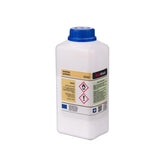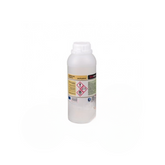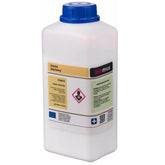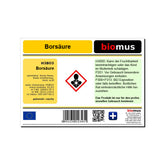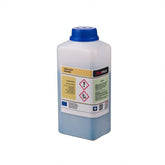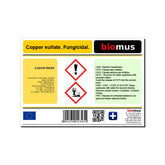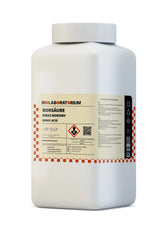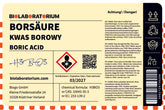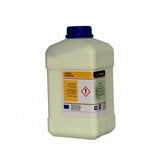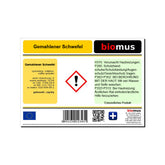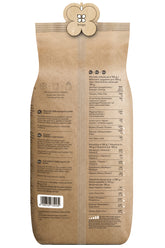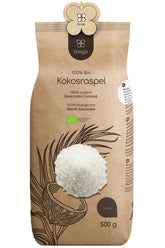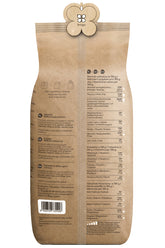Epsom salt, also known as magnesium sulfate, is a versatile mineral with many applications in agriculture and industry. As a natural fertilizer, it supports plant growth, while in industrial processes it serves as an important raw material. In this blog post, we highlight the numerous uses of Epsom salt and show why it is an indispensable part of modern, sustainable economic cycles.
The importance of magnesium for plants
Magnesium plays a crucial role in the growth and development of plants. As a component of chlorophyll, it is essential for photosynthesis. Furthermore, it supports many vital processes such as nutrient uptake, water balance, and stress resistance in plants.
Unfortunately, magnesium is not present in sufficient amounts in many soils, so deficiency symptoms such as chlorosis (yellowing) or growth disorders can occur. This is where Epsom salt comes in: supplied as magnesium sulfate fertilizer, it specifically provides plants with this important nutrient and promotes healthy, vigorous growth.
Use in agriculture
Epsom salt is used in agriculture in many ways:
-
Soil fertilization: Applying magnesium sulfate fertilizer increases the magnesium content in the soil, which enhances plant growth and yields.
-
Foliar fertilization: A spray application of Epsom salt solutions directly onto the leaves can quickly remedy deficiencies and improve plant vitality.
-
Seed treatment: Soaking seeds in magnesium sulfate solutions promotes germination and the vitality of young plants.
-
Compost enrichment: Adding Epsom salt to compost or slurry increases the magnesium content of the organic fertilizer.
Overall, Epsom salt, as a natural, environmentally friendly fertilizer, contributes to sustainable, high-yield agriculture.
Industrial applications of Epsom salt
Besides agriculture, Epsom salt is also used in numerous industrial processes:
Chemical Industry
In the chemical industry, magnesium sulfate serves as an important starting material for the production of precipitants, flocculants, and coatings. Furthermore, it is used in pharmaceuticals, cosmetics, and textile finishing.
Construction industry
Epsom salt is used in the construction industry as an additive to concrete, mortar, and plasters. It improves the workability, strength, and durability of building materials.
Water treatment
In sewage treatment plants and waterworks, magnesium sulfate is used to remove phosphates, heavy metals, and other pollutants from water. It also serves as a precipitant for water softening.
Food industry
In food production, Epsom salt has a variety of uses, such as an additive in baked goods, beverages, or canned foods. It also plays an important role in cheese production.
Animal feed
Last but not least, magnesium sulfate is also added to animal feed to regulate the magnesium balance of livestock and prevent deficiencies.
Sustainable extraction and production of Epsom salt
The extraction and production of Epsom salt generally take place in an environmentally friendly manner. Many deposits are located in natural salt deposits where the mineral is obtained by evaporation. Other sources are seawater or brine from mines, which are also processed by evaporation.
In the industrial production of magnesium sulfate heptahydrate (crystalline Epsom salt), modern, energy-efficient processes are also used. Energy consumption is minimized and the use of auxiliaries is reduced to a minimum.
Overall, Epsom salt is characterized by high sustainability – from extraction through processing to application in agriculture and industry.
Conclusion: Versatile helper with a future
Epsom salt, or magnesium sulfate, is a true all-rounder: in agriculture, it supports plant growth as a fertilizer and increases yields. In industry, it serves as an important raw material for numerous production processes. It impresses with its environmental friendliness and sustainability from extraction to application.
Given the growing importance of the circular economy and resource efficiency, Epsom salt will continue to play a central role in the future. It is a prime example of how natural minerals can be used sensibly and responsibly to support both people and the environment.


